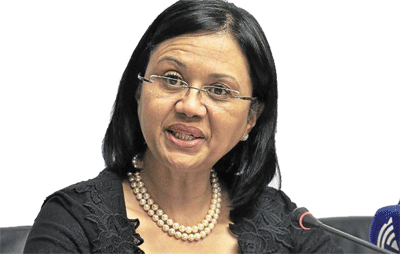
PETROSA’s plans to enter the fuel retail market have been scuppered after Malaysian oil giant Petronas pulled out of a deal that could have seen SA’s national oil company taking control of Engen.
The deal, worth about R18bn, was set to transform PetroSA from a primary supplier of fuel to a major player with an extensive distribution and retail network, but the Malaysians pulled the plug on it a week before Christmas due to a lack of funding.
The Treasury was not convinced by the business case made by PetroSA. There was concern that PetroSA’s balance sheet could not carry the debt. In 2009, the company had cash holdings of R11 billion, but that has shrunk to R5bn today.
PetroSA planned to buy the 80% stake of Engen held by Petronas, and November was set as the deadline to conclude the deal. The purchase would have included Engen’s entire retail fuel business and its ageing refinery, which would have required a refit or decommissioning.
On December 17, Petronas sent a letter to PetroSA chief executive officer Nosizwe Nokwe-Macamo and Energy minister Tina Joemat-Pettersson, informing them the deal was off the table.

The letter was kept under wraps until last week, when board members began asking for progress reports on the deal.
PetroSA vice-president of corporate affairs Zama Luthuli on Monday confirmed receipt of the letter but declined to discuss its contents.
“I can confirm that our CEO, Nosizwe Nokwe-Macamo, received a letter dated December 17 2014 from Petronas. The matter will be dealt with at the next PetroSA board meeting before the end of January 2015,” she said.
- Chamisa under fire over US$120K donation
- Mavhunga puts DeMbare into Chibuku quarterfinals
- Pension funds bet on Cabora Bassa oilfields
- Councils defy govt fire tender directive
Keep Reading
“Until that process is finalised, we are not in a position to comment further on the matter.”
Last year, PetroSA announced plans that included acquiring petrol stations, expanding into the liquid natural gas industry, and developing the 360 000-barrel-a-day refining facility dubbed Project Mthombo that had been earmarked for the Coega Industrial Development Zone in the Eastern Cape.
Had the Petronas deal gone through, it would have added refining capacity of about 135 000 barrels a day to PetroSA’s capacity.
Petronas holds 80% of Engen; the remaining stake is held by the black-controlled Pembani Group.
A spokeswoman for Ms Joemat-Pettersson, Zodwa Visser, was unavailable to comment on Monday. The Department of Energy did not respond to questions.
Engen’s Gavin Smith said: “Unfortunately we can’t comment on that. You will need to contact Petronas.” The Malaysian company did not respond to questions.
In October last year, PetroSA’s annual report showed it had impaired its production and exploration assets by R3,4bn, largely because of delays and rising costs in Project Ikhwezi — its plan to prolong the life of the Mossgas gas-to-liquids plant near Mossel Bay by seeking further resources southeast of the gas field.
PetroSA chief financial officer Lindiwe Mthimunye-Bakoro said in the annual report the group had R5,5bn in available cash at the end of March last year.
The company had invested R5,3bn in property, plant and equipment, mainly for Project Ikhwezi, and had committed to spending R11bn in the current year, of which R4,6bn was for Ikhwezi and R5,6bn for downstream activities.
PetroSA is responsible for supplying diesel for Eskom’s open-cycle gas turbines at Mossel Bay.
PetroSA’s board was wracked by turmoil late last year when chairman Tshepo Kgadima was fired after he was accused by a group of investors of an elaborate “swindle” by his company, LontohCoal.
It is understood he touted investments promising a $1bn listing on the Hong Kong Stock Exchange. He claimed to have mines in Zimbabwe and SA, but this has been denied by authorities in both countries.
PetroSA’s directors are rebuffing plans by the Central Energy Fund to vet them in the wake of Kgadima’s departure. A group of board members last month expressed their dissatisfaction with being vetted.
– BD Live










